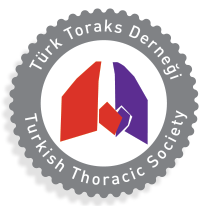Abstract
OBJECTIVES: Postoperative dyspnea is common after cardiac surgery, even in low-risk patients. Cardiac surgeons and anesthesiologists are familiar with patients suffering from dyspnea in the early postoperative period, but in some cases, conventional treatment strategies may be ineffective, and a consultation with a pulmonologist may be required. The aim of this study is to investigate the causes of dyspnea after cardiac surgery in this particular patient group.
MATERIALS AND METHODS: The hospital database was searched for non-emergency cardiac surgery for the period January 2014–October 2015. Individuals with an impaired spirometry result and a history of any pulmonic disease were excluded. Only patients for whom a pulmonary consultation was needed because of dyspnea in the postoperative course were enrolled in the study. Causes of dyspnea were analyzed according to consultation reports and computed tomography findings.
RESULTS: One hundred and three patients were enrolled in the study. Of those, 67 (65%) were male, and the mean age was 61.50±9.43. The most common procedure was the coronary artery bypass grafting. Atelectasis (n=57, 42%) was the most common cause of dyspnea. The length of the intensive care unit (ICU) stay was significantly longer in the pneumonia group (p=0.012). Hospital mortality in the pneumonia group was significantly higher compared with other subgroups (p<0.001).
CONCLUSION: After cardiac surgery, atelectasis was the most common cause of dyspnea, followed by pleural effusion and pneumonia. Patients who experienced dyspnea due to pneumonia had a longer ICU stay. Developing the treatment strategies with consideration of these causes may help reduce the length of stay, morbidity, and mortality in this patient group.
Cite this article as: Bolukcu A, İlhan S, Topçu AC, et al. Causes of Dyspnea after Cardiac Surgery. Turk Thorac J 2018; 19(4): 165-9.



.png)
